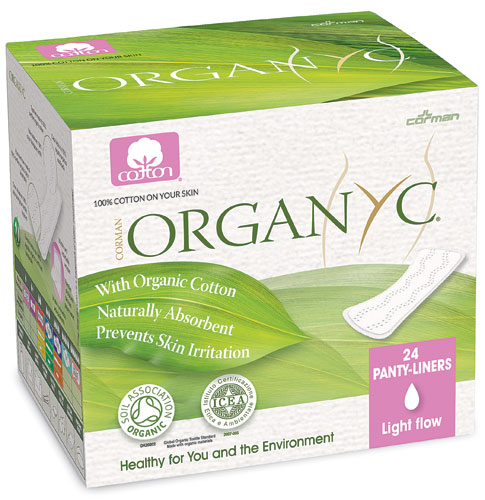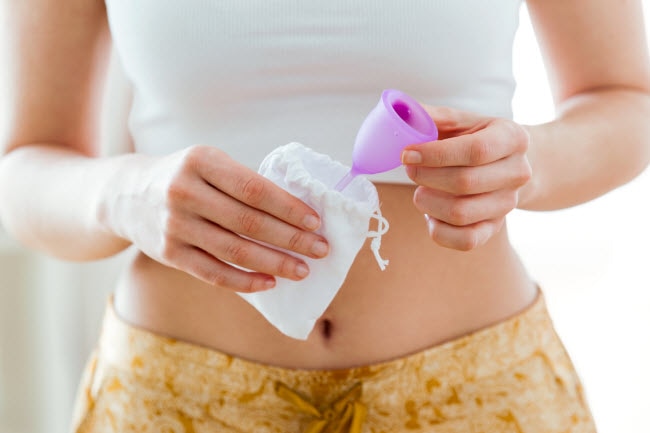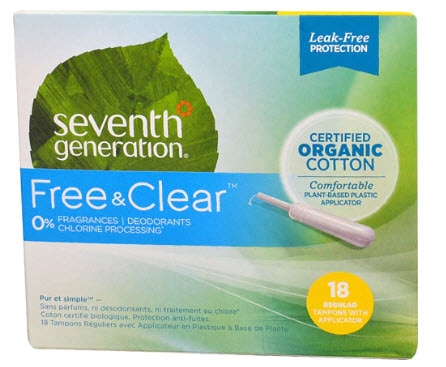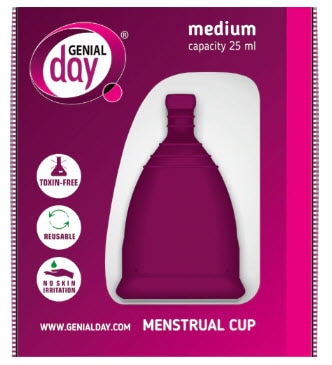On October 19, 2019, we will rally in all 50 states in honor of the world’s first #NationalPeriodDay -- elevating the issue of period poverty and demanding real change to making period products more accessible for all and ending the #TamponTax.
In the current cultural feminista climate, an era of me too, body positivity and almost mandatory self-care, coming out of the closet with our menstrual cycle makes total sense. There’s even a name for it—menstrual activism.
It’s also referred to as the menstrual movement, period.org. On the website, it says, “Our mission is to end period poverty and period stigma.” In recent years there has a been a spike in menstrual activism, artists and photographers who include period stains in their work. Last year, a runner made a period statement by bleeding openly during her marathon run.
To meet the growing consciousness around menstrual rights, several startups are playing key roles to help break taboos. Some companies offer female consumers high-tech underwear that prevents staining and sleek, inconspicuous tampon carrying cases.
As the menstrual movement gathers momentum, women are starting to re-examine many menstruation-related conventions, such as the sustainability of tampons and pads. As women seek out more thoughtful and innovative solutions, they’re looking for brands that reflect their own environmental concerns.
If you’re curious about how you can make your period lower to zero waste, here are three of our favorite period pieces.
3 Lower- or Zero-Waste Period Care Options
1. Organic tampons
There’s a wave of organic cotton tampon startups that have exploded in the past year, alongside a handful of more established organic tampon companies, such as Natracare, the Organic Initiative and Seventh Generation. These brands offer a viable alternative to the multi-billion dollar global tampon industrial complex that’s dominated by Tampax, Playtex and U by Kotex, all of which sell non-organic models.
2. Menstrual cups
A burgeoning eco-friendly alternative to tampons or pads, a menstrual cup is a small, flexible cup made of silicone or latex rubber that you insert inside your vagina similar to a tampon. But instead of absorbing your flow, like a tampon or pad, it catches and collects it. The problem though, is that because it’s not disposable, how do you empty it out and clean it at a public bathroom?
One option is to use the handicapped bathroom, which often has a sink inside. Another option is to empty it out inside the stall. Wash your hands before you enter the stall, take out the cup, dump the contents into the toilet and reinsert. If you need to, you can wipe the cup clean with toilet paper. When you are done re-inserting, clean your fingers with a wet wipe or toilet paper and then wash your hands again in the restroom.
3. Period panties
Period panties are washable, reusable undies that absorb your period and are a more sustainable solution than single-use disposable products. Companies like Thinx have created panties of different materials and thickness designed to best accommodate your flow (light, medium, heavy). Period panties can replace pads, tampons, liners and cups, or be worn with tampons and cups for extra protection.
Given all the new possibilities for menstruating sustainably, old school bleached white cotton pads and tampons seem unnecessarily retrograde. Reclaiming menstruation with sustainably designed products is just the first step toward a culture that actively honors a woman’s cycle.
Imagine, for a moment, a menstruation utopia in which women’s cycles were actually leveraged, not shamed.
The following is from an article published in Marie Claire in 2017:
“And then there is the radically holistic model known as the Red School Movement, a sort of menstrual utopia. Its founder, the Australian psychotherapist and educator Alexandra Pope, is at the fore of the concept called “menstruality”—a program designed to take business to a whole new lunar level by treating the monthly cycle as a force to be leveraged and harnessed. Just imagine being able to potentially align key assignments around those days we’re biologically primed for heightened creativity or productivity (or to steer clear of the crankiest, crampiest ones).”
So next time it’s that time of month, reduce, reuse and recycle—but most of all, redeem. Treat menstruation as a force to be harnessed, not hid. Your co-workers may be readier than you think to catch on.
Editor’s note: If you're thinking about swapping single-use period products for reusable ones, you may want to consider reducing waste in other areas of you life as well. Check out our Zero Hunger, Zero Waste initiative for more information.






